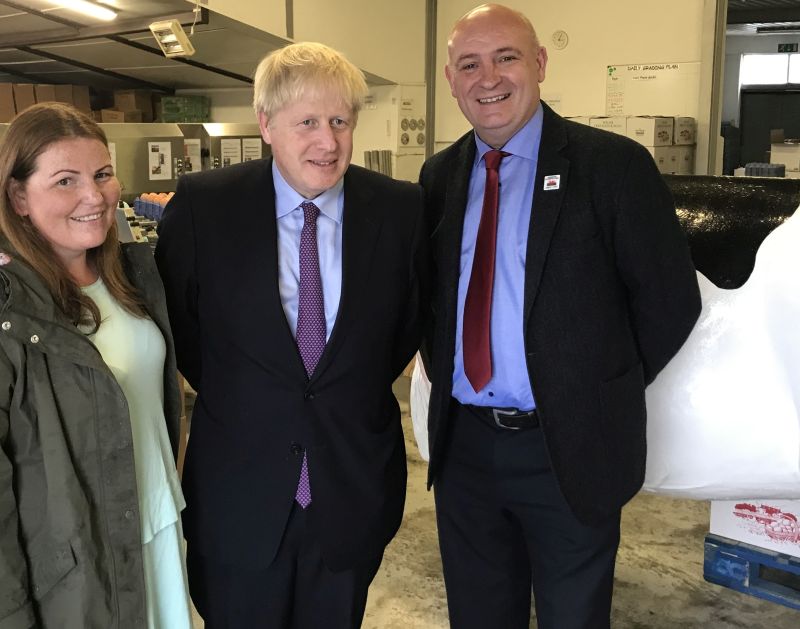
The government is working on a £500m plan to buy up finished livestock at set prices in the event of a no-deal Brexit, it has been reported.
Former Defra Secretary Michael Gove, who is now in charge of no-deal planning, is thought to be spearheading the plans, according to The Times.
It would see the government agree to purchase any beef and lamb at the point of slaughter at a pre-determined price under a plan which is expected to cost £500m.
If the UK leaves the EU without a deal, the government's plan would help the industry in the event of a collapse in European demand because of high tariffs.
It follows Boris Johnson's visit to Wales on Tuesday (29 July) as he tries to garner support for his government's plan for farming once the UK leaves the EU.
During the visit, a Welsh farmer urged the new Prime Minister to stop 'playing Russian roulette' with the lamb industry.
Farming industry figures fear a no-deal Brexit would have far reaching consequences, but certain sectors could be more affected than others.
Meanwhile, the Farmers' Union of Wales (FUW) warned of 'civil unrest' in rural communities if no agreement is struck between the UK and EU.
But Mr Johnson's visit to Welsh farms were a 'welcome recognition' for the industry, said NFU Cymru.
He visited the farm of NFU Cymru Poultry Chair, Victoria Shervington-Jones, to outline his ambition for farming and food production and how this could be achieved through new policies to support farming and the signing of new trade deals.
The Prime Minister said that his government 'will always back Britain's great farmers' as the UK leaves the EU.
“We need to make sure that Brexit works for them,” he said.
“That means scrapping the Common Agricultural Policy and signing new trade deals - our amazing food and farming sector will be ready and waiting to continue selling ever more not just here but around the world.
“Once we leave the EU on 31 October, we will have a historic opportunity to introduce new schemes to support farming - and we will make sure that farmers get a better deal.”
